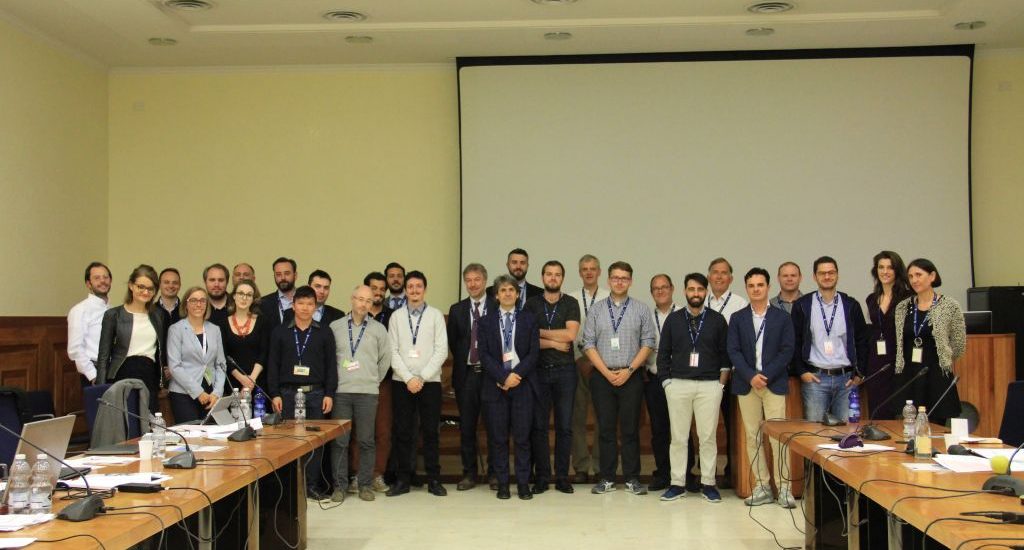Maritime Big Data Workshop at CMRE, La Spezia, Italy
The increase of the global maritime traffic and the activities exploiting the ocean resources have led to a series of technological innovations to ensure the safety and security of maritime navigation and guarantee the “blue growth”, so is named the growth of the maritime sector, is sustainable and inclusive.
These include the development of automated monitoring systems and maritime sensors networks that have boosted automation technologies now tested for autonomous cargo shipping and which have produced a tremendous increase of the data available, opening new avenues to science-driven maritime operations and policy making.
According to a report published by the European Maritime Security Agency in 2017 , currently about 12,000 vessels move daily in European waters exchanging their position to avoid collisions with a total of about 200,000,000 positional messages recorded every month by 700 coastal stations in Europe. The National Coastguards and Navy officers who constantly monitor the maritime traffic in European waters share these messaged in order to detect potential threats and to adopt the necessary safety measures in case of accidents.
On 9 – 10 of May 2018, the NATO STO Centre for Maritime Research and Experimentation in La Spezia hosted the Maritime Big Data Workshop involving researchers and experts from 9 countries including Brazil, South Africa, Canada and Vietnam. For two days, 37 researchers, technology providers and representatives of the operational community met to present and discuss about Big Data innovations for maritime security, safety and security of maritime navigation and transport, sustainable fisheries and exploitation of ocean resources. Researchers from main European and international institutions and companies, including Leonardo, Marine Traffic, and IMIS Global, presented the results of 6 Maritime Big Data projects funded by the European Union’s Horizon 2020 Programme.
The workshop has been sponsored by the Research and Innovation collaborative project datAcron (Big Data Analytics for Time Critical Mobility Forecasting), whose aim is to advance Big Data technologies in order to increase the capacities of systems to analyse large numbers of moving entities in large geographical areas by developing novel methods for real-time entities tracking and event forecasting. The datAcron project is funded by the European Union’s Horizon 2020 Programme under grant agreement No. 687591.
For more information, you may visit the Maritime Big Data Workshop website: http://www.cmre.nato.int/maritime-big-data-workshop-home
CONTACTS:
Web: CMRE website
Email: pao@cmre.nato.int

Leave a Reply